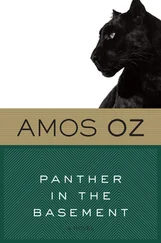Amos Oz - Where the Jackals Howl
Здесь есть возможность читать онлайн «Amos Oz - Where the Jackals Howl» весь текст электронной книги совершенно бесплатно (целиком полную версию без сокращений). В некоторых случаях можно слушать аудио, скачать через торрент в формате fb2 и присутствует краткое содержание. Год выпуска: 2012, Издательство: Houghton Mifflin Harcourt, Жанр: Современная проза, на английском языке. Описание произведения, (предисловие) а так же отзывы посетителей доступны на портале библиотеки ЛибКат.
- Название:Where the Jackals Howl
- Автор:
- Издательство:Houghton Mifflin Harcourt
- Жанр:
- Год:2012
- ISBN:нет данных
- Рейтинг книги:4 / 5. Голосов: 1
-
Избранное:Добавить в избранное
- Отзывы:
-
Ваша оценка:
- 80
- 1
- 2
- 3
- 4
- 5
Where the Jackals Howl: краткое содержание, описание и аннотация
Предлагаем к чтению аннотацию, описание, краткое содержание или предисловие (зависит от того, что написал сам автор книги «Where the Jackals Howl»). Если вы не нашли необходимую информацию о книге — напишите в комментариях, мы постараемся отыскать её.
Where the Jackals Howl — читать онлайн бесплатно полную книгу (весь текст) целиком
Ниже представлен текст книги, разбитый по страницам. Система сохранения места последней прочитанной страницы, позволяет с удобством читать онлайн бесплатно книгу «Where the Jackals Howl», без необходимости каждый раз заново искать на чём Вы остановились. Поставьте закладку, и сможете в любой момент перейти на страницу, на которой закончили чтение.
Интервал:
Закладка:
She did not answer but moved away from him. Her eyes were dry. Her teeth were clenched. And her mouth was like a curved Arabian sword.
After that she stopped visiting him and never again appeared in Dov’s apartment in Jerusalem.
9
DOV COMPLETED his sketch of the mountainous country and began to draw a raging river unlike any other river on the face of the earth. He carved out a huge canal, added a series of tributary waterways, and laid out a complicated network of gradients, slopes, dams, reservoirs, and lakes, complete with measurements. He also drew up an intricate scheme for calculating angles of incline, tolerance of road surfaces, pressure of water against the stress capacity of the dam, strength of rock, stability of the subsoil beneath lakewater, pressure of currents and winds, accumulations of eroded sand. About an hour earlier the sound of footsteps on the staircase had stopped. Now it returned. Somebody was treading the stairs, slowly, very heavily, leaning on the creaking old banister. The heart attack had come near the end of the school year. Between the first attack and the second there had been solid months of extreme discomfort and horrific nightmares: he was alone in the desert, alone on a raft in the middle of the ocean, alone in an airplane without any idea of how to handle the controls or how to land or avoid crashing into the mountains that drew closer by the second. Dov decided to give in. He retired from teaching and shut himself away in his room. There was nobody to interfere with his daily and nightly routine: light meals, a slow and pensive walk, the evening paper, music, working at his desk until daybreak, morning sleep, and at midday, yogurt, bread, and a cup of lemon tea.
He lived on a pension. In addition to this, he sometimes took original and perhaps artistic landscape photographs, which he would send to one of the weekly magazines. But these pictures were almost invariably printed on inferior paper and appeared at the bottom of page sixteen, between the recipes and crossword solutions. All that was left of their beauty was a smudgelike stain and a caption such as, “Monastery in the village of Ein-Kerem at evening, photographed by Sirkin.”
All these photographs find their way eventually into Zeshka’s massive old album. Week by week, one by one, she cuts the smudged pictures out of the magazine, sticking them with thick homemade paste to the black pages of her album. As she works her eyes sparkle with a kind of delight. And wrinkles of cold cunning converge around her sunken eyes. Behind her back we call her by the unkind nickname Owl.
Every morning, after finishing his night’s work and before going to bed, Dov Sirkin would stand at the window and gaze out eastward, watching the sun climb up from beyond the mountains of Moab, casting white flames on the surface of the Dead Sea, thrusting its rays like spears into the flanks of the bare mountains, striking down without mercy on the walls of shaded monasteries, heavy with bells. The day would begin.
At midday, after waking up, after tea, bread, yogurt, and olives, he would sit on his little balcony among potted cacti and dead houseplants, watching the street. The street was curved, with stone walls, gardens, rusty iron latticework at every window. And a long line of garbage cans along the sidewalk. Toward evening he used to go out for a walk, and in the course of his stroll he would sometimes photograph some unexpected scene. The charm of the approaching night, the distant cries of children, a radio blaring in a neighboring house, all of these contributed to a sense of peace. He ate supper at a small cooperative cafe: eggplant salad, fried egg with pickled cucumber, yogurt, and cafe au lait.
At night he sketched. All the drawers of his cupboard were crammed with drawings and photographs, plaster models, detailed arithmetical calculations regarding the properties of raw materials, development costs, building techniques, mechanical equipment, manpower, synchronized schedules for construction and communication projects, integrated systems, geometrical and architectonic principles expressed numerically and in diagrams. There were also timetables for trains faster than the fastest trains in existence, winding railways plunging into giant tunnels, carved out of the bedrock of imaginary lands. Avenues of a thousand fountains bathed in dazzling light, crossroads of dream cities that never were and could never be. Exquisite spires of tall cities rising beyond the line of the mountain peaks and looking down on the bays of the sea, blue rollers breaking on the threshold of silence.
10
AT FOUR o’clock in the morning the wind began to walk the streets. It plucked the lid from a rusty garbage can and tossed it against the asphalt road and the stone steps.
Light, brisk footsteps approached the door of the apartment. For two hours the stranger had been loitering between the ground floor and Dov’s apartment. Now he suddenly began to hurry. He was running, racing up the stairs two at a time. He had no time to spare. What’s the matter, where’s the fire, Dov grumbled.
He stood up and stumbled to the door, his shoulders drooping.
Many years before, Dov used to seal the shutters of his little room on the edge of the kibbutz, closing the window and the curtain, shutting the stillness into the room and the night with its darkness outside. He would sit on the carpet and build a tower of bricks for his children: raising it higher and higher, laughing, making jokes, laying brick upon brick until it reached his waist, reached his shoulders, with the children watching in disbelief and starting to gasp and giggle in anticipation, and sure enough, in the end there was always an avalanche. From the sofa came the sound of Zeshka’s knitting needles, calmly going about their business. And the smell of coffee and the smell of children washed spotlessly clean. Outside, beyond the walls, the shutters and the curtain, the jackals were crying piteously. Geula laughed and Ehud laughed and Dov, too, would smile a neat smile to himself as if saying: Good.
The jackals are pathetic creatures, dripping saliva and mad-eyed. Their footsteps are soft and their tails quiver. Their eyes shoot out sparks of cunning or despair, their ears prick up, their mouths hang open and their white teeth flash, spittle and foam drip from their jaws.
The jackals circle on tiptoe. Their snouts are soft and moist. They dare not approach the lights of the perimeter fence. Around and around they shuffle, mustering as if in readiness for some obscure ritual. A ring of jackals prowls every night about the circle of shadows that encloses the island of light. Till daybreak they fill the darkness with their weeping, and their hunger breaks in waves against the illuminated island and its fences. But sometimes one of them goes insane and with bared teeth invades the enemy’s fortress, snatching up chickens, biting horses or cattle, until the watchmen kill him with an accurate volley from medium range. Then his brothers break into mourning, a howl of terror and impotence and rage and anticipation of the coming day.
Day will come. Or night.
Slowly, like black-robed priests in a ceremony of mourning, they will approach the young man’s corpse in no man’s land. With agile steps, as if caressing, not treading, the dust of the earth. With dripping muzzles. First they will form a circle, at a distance, and sniff softly. Then one of them will approach the body and bend down, probing with the tip of his snout. A lick, or a final sniff. Another will advance and rip open the tunic with razor-sharp teeth. A third and a fourth and a fifth will come to lap his blood. Then the first will give a low chuckle. The oldest jackal will cut himself a portion with his gleaming curved teeth. And then the whole pack will roar with laughter.
Читать дальшеИнтервал:
Закладка:
Похожие книги на «Where the Jackals Howl»
Представляем Вашему вниманию похожие книги на «Where the Jackals Howl» списком для выбора. Мы отобрали схожую по названию и смыслу литературу в надежде предоставить читателям больше вариантов отыскать новые, интересные, ещё непрочитанные произведения.
Обсуждение, отзывы о книге «Where the Jackals Howl» и просто собственные мнения читателей. Оставьте ваши комментарии, напишите, что Вы думаете о произведении, его смысле или главных героях. Укажите что конкретно понравилось, а что нет, и почему Вы так считаете.












